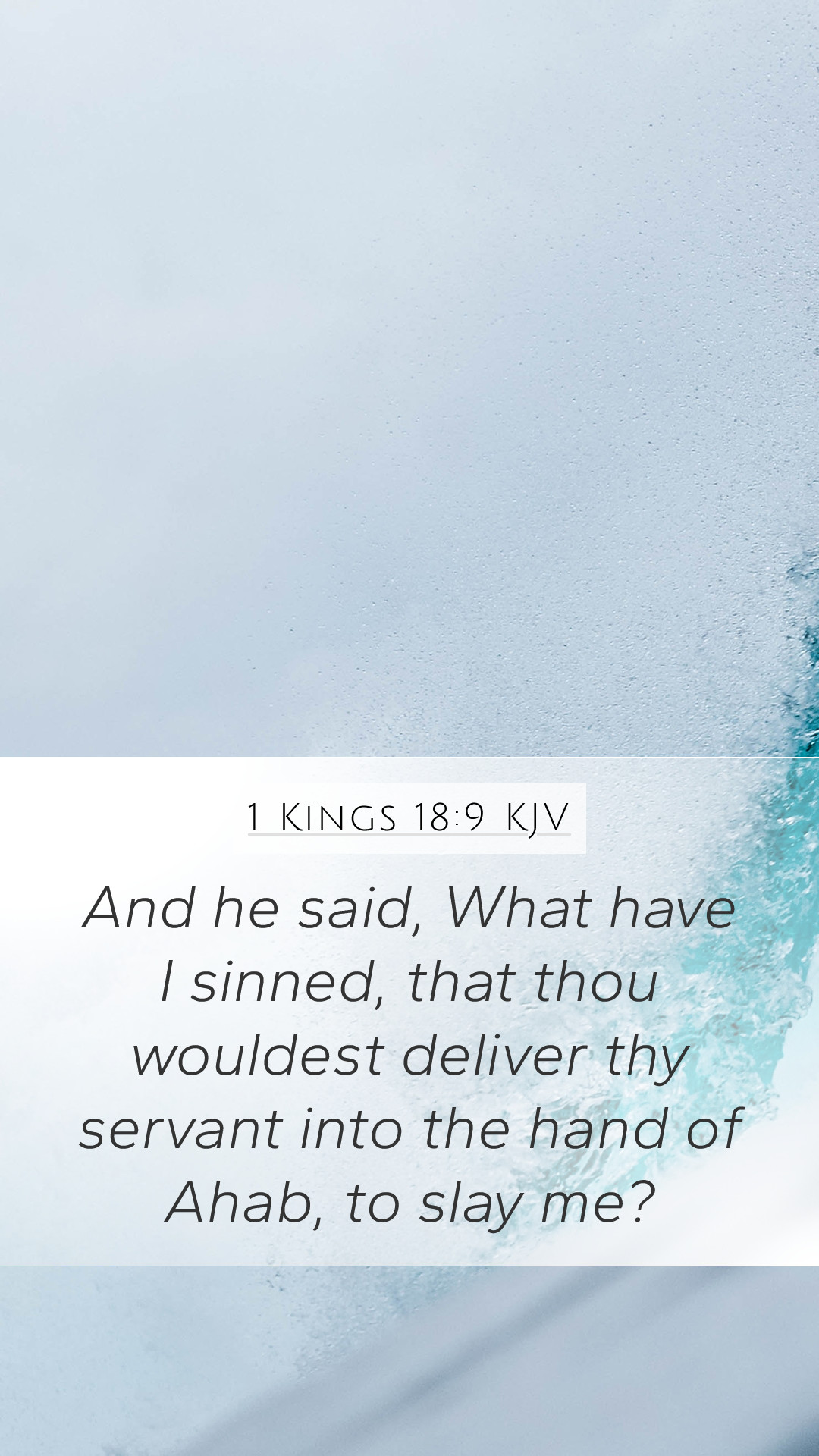Understanding 1 Kings 18:9 - A Comprehensive Bible Verse Commentary
1 Kings 18:9 states: "And he said, What have I sinned, that thou wouldest deliver thy servant into the hand of Ahab, to slay me?"
This verse captures a critical moment in the narrative of Elijah and the Northern Kingdom of Israel under King Ahab. In analyzing this verse, we notice key themes of fear, accountability, and prophetic duty. Below is a combination of insights derived from prominent public domain commentaries, including those by Matthew Henry, Albert Barnes, and Adam Clarke.
Verse Context and Overview
To fully grasp the meaning of 1 Kings 18:9, one must consider the historical context surrounding Elijah's confrontation with Ahab. For three years, Israel faced a severe drought as a divine judgment for the nation's idolatry and sin. In this moment, Elijah is instructed to present himself to Ahab, which naturally incites fear in the heart of the servant who meets Elijah.
Commentary Insights
-
Matthew Henry:
Henry highlights the weight of fear that permeates the servant's words. He recognizes the perilous task Elijah is undertaking and reflects on the servant’s heartfelt inquiry. In essence, he questions why he, a mere servant, should be subjected to such a grave danger if Elijah's mission is indeed righteous. Henry points out that this reflects a common human concern for safety and survival when faced with divine commands.
-
Albert Barnes:
Barnes elucidates the tension between the prophetic calling and the fear of mortal consequences. The servant's fear signifies the natural response of those who must carry out God's commands amidst a hostile environment. Barnes emphasizes the necessity of courage in undertaking spiritual duties, akin to many prophets who faced opposition and threats.
-
Adam Clarke:
Clarke provides insight into the relational dynamics between Elijah and the servant, indicating that fear often leads to questions of trust and faith. The servant's question reflects a deeper concern about God’s intentions and the consequences of sticking to the prophetic path. Clarke ties this to the broader theme of reliance on divine protection amidst adversity.
Theological and Practical Applications
The inquiries made by the servant in 1 Kings 18:9 resonate with believers today, particularly when faced with challenges pertaining to their faith. This scripture encourages individuals to explore the tensions between divine purpose and personal safety, as well as the importance of relying on God for protection and guidance during difficult times.
In our own lives, we may encounter situations that provoke fear or uncertainty, prompting a similar question: "What have I done to deserve this trial?" This verse serves as a reminder of God's sovereignty, the call to faithfulness, and the assurance of divine provision.
Cross References
- James 5:17: Elijah was a man with a nature like ours, and he prayed fervently that it might not rain.
- 1 Kings 16:30-33: The introduction of Ahab and his reign marked significant idolatry in Israel.
- 1 Kings 17:1: The beginning of Elijah's ministry and pronouncement of drought serves as critical background.
Conclusion
In summary, understanding 1 Kings 18:9 involves recognizing the challenges faced by those following God's call. The insights from various commentaries not only enhance the understanding of this scripture but also present an opportunity for deeper reflection on our own faith journeys. As believers explore these insights, they may find comfort and encouragement in God’s promises and the call to stand firm in faith, especially in the face of fear and uncertainty.


